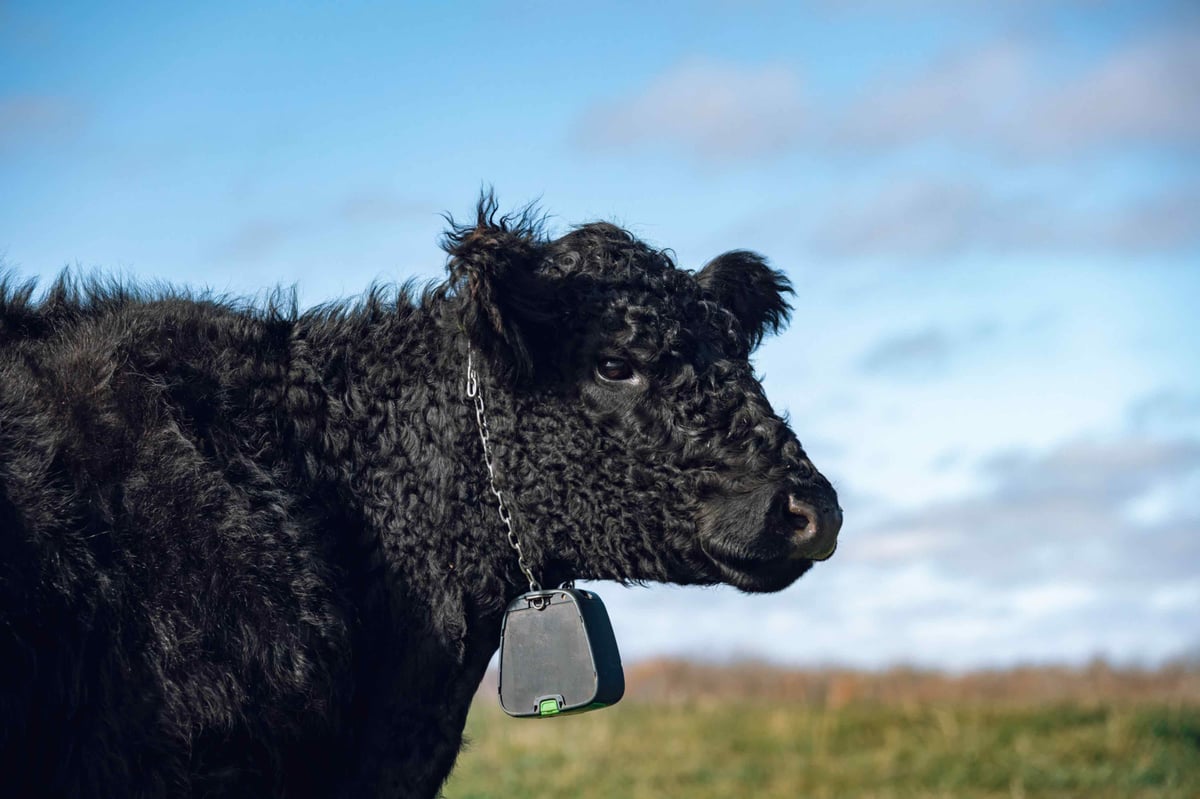
Revitalizing marginal land for sustainable farming
Will Oberton and Erin Gervais, the father-daughter duo behind Blackberry Ridge Farms in Winona, Minnesota, are leading the way in sustainable farming. Managing 80 cows with Nofence collars, they’ve transformed marginal land into productive pastures, boosting profits and improving soil health. With a focus on regenerative agriculture, Will and Erin show that even the toughest land can thrive when innovation meets determination.
Unlocking land and increasing profits
At Blackberry Ridge Farms, Will and Erin have turned steep terrain and rough conditions into opportunity with Nofence. Traditional fencing on these areas was costly and inefficient, leaving valuable land untapped. Now, virtual fencing has enabled them to graze these once-inaccessible areas, unlocking new potential for their farm.
“I could see that with virtual fencing, we could make these areas work better for us,” Will shares. “We’ve got some land that’s not ideal for traditional farming, but Nofence helps us unlock its potential and turn it into profit.”
One major benefit is the financial savings. By using marginal land, Will and Erin have saved approximately $25,000 annually, thanks to increased grazing efficiency and reduced reliance on feed. “The ability to move cattle between different parts of the land without worrying about physical fences has really helped us manage costs,” Erin explains. “Our feed savings alone have been a huge help, especially on land that’s not as fertile as others.”

The herd at Blackberry Ridge Farms—equipped with Nofence collars to graze freely while staying safely within virtual boundaries.
“By using marginal land, we’ve saved approximately $25,000 annually, thanks to increased grazing efficiency and reduced reliance on feed.” — Will Oberton
Improving land health with sustainable practices
With precision grazing management, Nofence has allowed Will and Erin to rotate their cattle more effectively, improving soil health and resilience across their pastures. Targeted grazing reduces overgrazing and helps grasslands recover, resulting in healthier soils and stronger regrowth.
“The land is definitely benefiting from being able to rotate the cattle more effectively,” Will says. “It’s a lot less stress on the soil, and the grass is coming back stronger. We’ve seen a real improvement.”
Prioritizing animal welfare and simplifying management
Animal welfare is a top priority at Blackberry Ridge Farms. With Nofence, Will and Erin manage grazing in a way that aligns with natural cattle behavior. Virtual fences give their herd the freedom to roam and graze naturally, which reduces stress and promotes well-being.
“The cows seem a lot calmer,” Erin shares. “They can move through different grazing areas that are more natural for them. We’re seeing healthier animals because of it.”
Nofence has also streamlined daily operations. Real-time tracking on the app lets Will and Erin monitor their herd from anywhere, reducing the need for time-consuming property walks. “We can literally check on the cattle any time we want,” Erin adds. “The way Nofence works, it’s really low-stress for the animals. They learn quickly to respond to the audio cues, and it’s been amazing to see how well they adapt.”

One of the Blackberry Ridge Farms cows wearing a Nofence collar, enabling precise grazing within virtual boundaries.
“The cows seem a lot calmer. They can move through different grazing areas that are more natural for them. We’re seeing healthier animals because of it.” — Erin Gervais

Monitoring the herd is made simple with the Nofence app, allowing real-time adjustments to virtual pastures with just a few taps.
Building the farm’s future with Nofence
Inspired by their success with Nofence, Will and Erin are eager to expand their use of the technology. They plan to acquire more collars to grow their herd, enabling them to scale their operations further and make additional underutilized land productive.
“As we increase the herd size, it becomes even more economically viable to use Nofence,” Will explains. “It’s the perfect time for farmers to embrace this technology. It’s a chance to transform underused land into a valuable resource.”
Looking ahead, Will and Erin are excited to continue innovating and exploring the possibilities virtual fencing offers. “We’ve got a great start with Nofence, but the possibilities are endless,” Will says. “We’re excited about what the future holds. This is just the beginning.”

Nofence’s virtual fencing ensures sustainable grazing across open pastures.
Turning environmental challenges into opportunities
Turning environmental challenges into opportunities
Stephanie Mathis has introduced a herd of goats to tackle wildfire risks, rehabilitate underutilized land, and combat invasive species.

